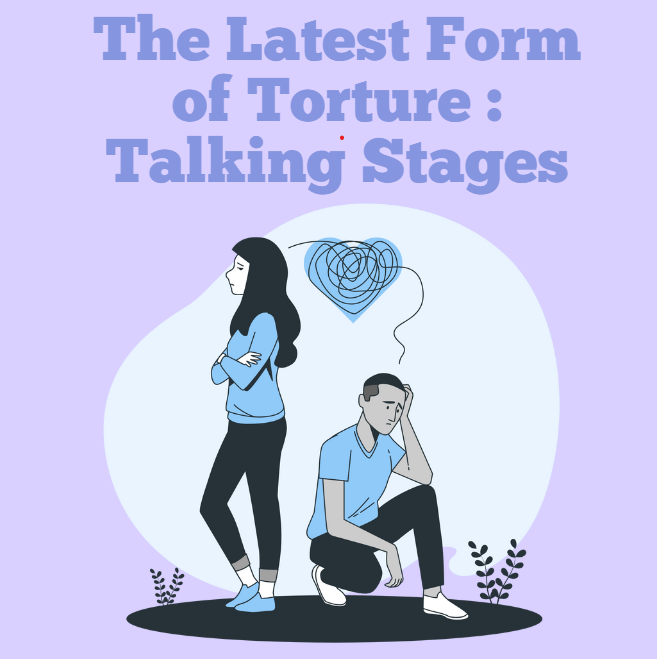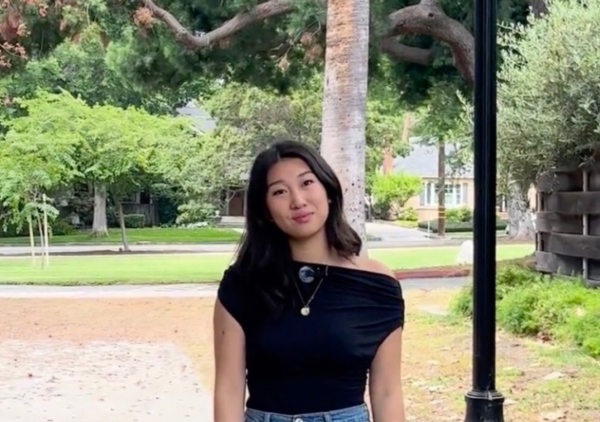Whether you love it or hate it, the concept of a “talking stage” has effortlessly adjusted itself into modern dating and is just one of the dozens of labels coined by Gen Z. This ambiguous phase serves as a transition between strangers to lovers. Here is how an average talking stage plays out: two people are attracted to each other on a surface level. A few months later, one of them is struck with the heavy realization that this talking stage has gone on for months, yet there’s been no official label. This realization paves the way for the most uncomfortable conversation of “What Are We?” a pivotal turning point that ends up creating a rift. In the blink of an eye, the feelings fizzle out, and before you know it, it’s over. While this may just seem like a hypothetical scenario to others, this is a reality for millions. To put things simply, talking stages are meaningless.
The talking stage, with its evident lack of clear boundaries, fosters the illusion of a relationship without any responsibility. This phase started gaining more traction during the pandemic, a time when our attachment to electronic devices skyrocketed. As our usage of technology soared, so did our comfortability behind the screen. According to a study conducted by Google with a sample size of 300 Gen-Z’s, more than 20% said a texting conversation can count as a date, and more than half flagged the importance of video and virtual dating in their lives. While it’s convenient, there’s less emphasis placed on being straightforward, and the interactions are solely limited to Snapchat selfies and one-word texts. When all the interactions are connected to the internet, the awkwardness only intensifies when meeting in-person.
The popular consensus on the Gen-Z population is that there is a fear of commitment and official labels. This overarching idea exposes exactly why talking stages tend to be drawn out for several lengthy months. Determining whether or not you want to be with someone is not as daunting or difficult as some make it out to be. Why indulge in these awkward stages when they unnecessarily prolong things? Instead, being friends is a simpler, less sought-after solution to getting to know someone. It allows for more genuine interactions without the added pressure. Most importantly, it establishes the proper foundation for a relationship based on more than superficial things like physical attractiveness.
As we navigate the nuances and complexities inherent to modern dating, it is crucial to question whether this seemingly benign stage can evolve into a meaningful relationship. The talking stage seems to only encourage a culture where Gen-Zers delude themselves into thinking they have a partner without facing reality. There are sacrifices and responsibilities needed to uphold any relationship, and staying in the talking stage only hinders that from happening. In our pursuit of finding someone, the value of building friendships and genuine interactions as a foundation for something more should not be underestimated.






